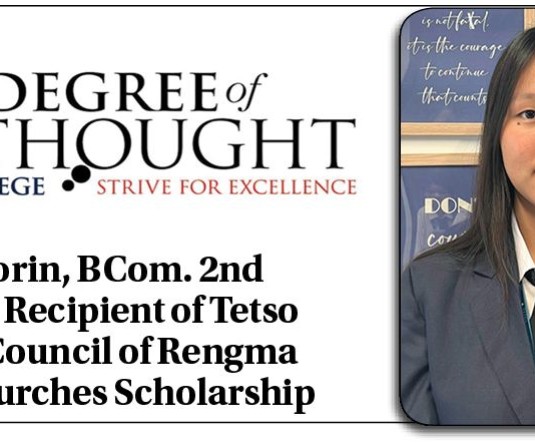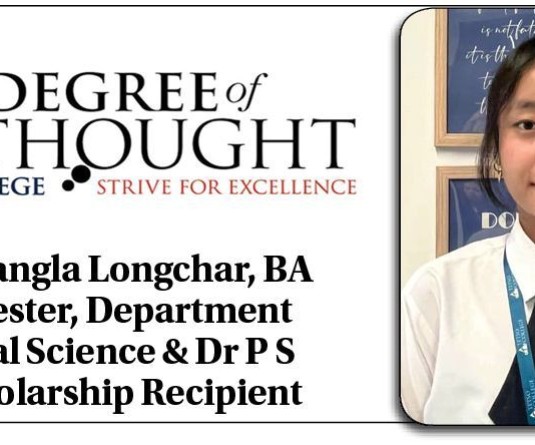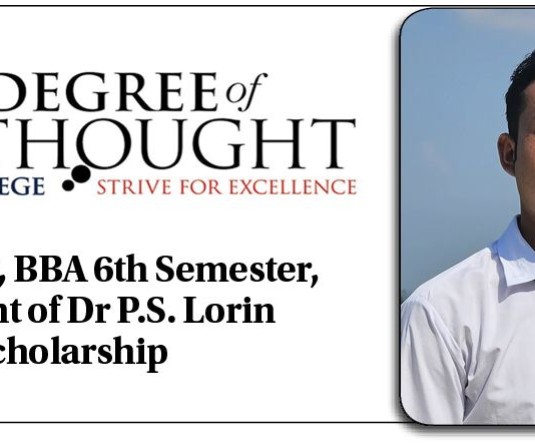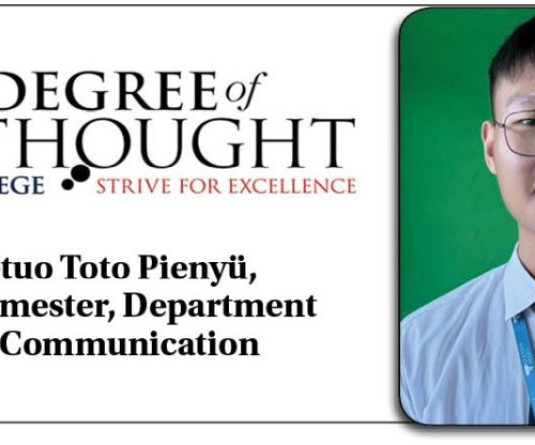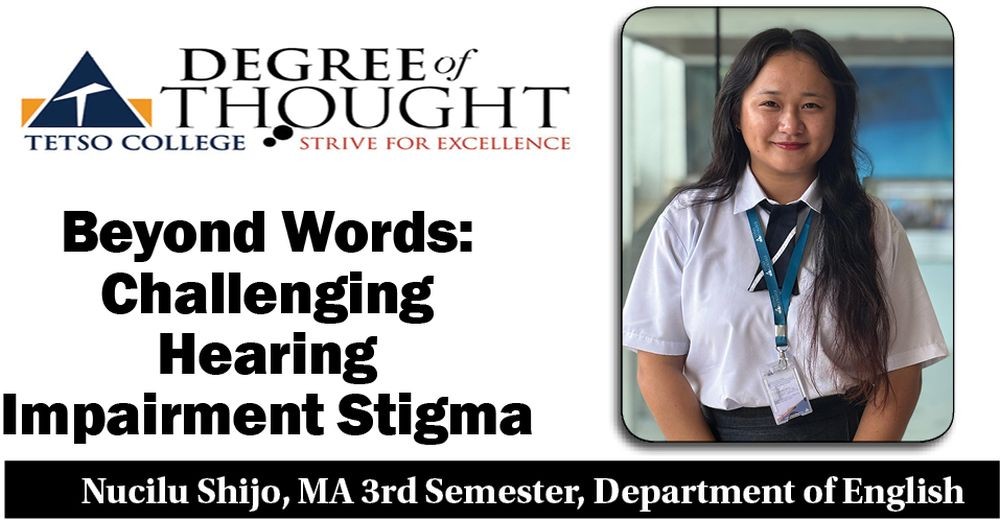
Silence is often romanticised as peaceful, but for many people living with Hearing Impairment (HI), it can be deeply isolating. Especially in a society like ours, where spoken words, music, and conversations are woven into every aspect of life, being unable to participate fully can be profoundly alienating. In Naga culture, spoken language has always been a marker of belonging. Listening to folktales by the fireside, singing together at church, or simply listening to the teachings of elders is the very heartbeat of society. But when someone is unable to hear in the way the majority does, belonging becomes conditional, and they are pushed to the margins by stigma and misunderstanding. When a person cannot hear, society often assumes they cannot communicate, cannot learn, and cannot lead. Yet, it is not the silence of Hearing Impairment that isolates people but rather the noise of stigma surrounding it. People with Hearing impairments often find themselves doubly excluded: first by their disability, and second by misunderstanding.
Naga society is often known for its deep conservatism, which, on the bright side, has preserved tradition and identity over generations, guarding cultural memory, protecting values, and binding communities together. Yet it also tends to resist change, and with that comes a hesitation to embrace difference. Hearing Impairment, instead of being seen as a different way of experiencing the world, is often misunderstood and reduced to a “lack”.
Stigma shows itself in subtle but powerful ways. A student with Hearing Impairment may be seen as inattentive in class, when in truth the system is inattentive to their needs. At community programs, those who cannot keep pace with group conversations often withdraw in silence, not because they lack interest, but because society has not learned how to include them. Even in churches, where community should be at its most open and compassionate, sermons and songs can exclude those who cannot hear.
Students in particular need to pay attention to this silence because schools and campuses are spaces where the next generation of leaders, thinkers, and changemakers is shaped. How we treat the people around us with Hearing Impairment is a measure of the society we are building. If stigma continues, the cycle of exclusion will simply pass from one generation to the next. But if we choose differently, we break the silence and create a culture of inclusion that transforms not just classrooms, but communities.
Breaking stigma starts with unlearning assumptions. Hearing Impairment is not a flaw in intelligence or capability. It is simply a different way of interacting with the world. The first step is to stop reducing people to what they cannot do and begin recognising what they can do. Many individuals with Hearing Impairment have developed extraordinary visual awareness, resilience, and adaptability. They can participate fully in academics, art, leadership, and social life.
How can college students take part in this change? The answer lies in small but meaningful actions.
First, learning the basics of communication. Even knowing a few words of sign language can open a door of belonging. Like the different spoken languages that exist all over the world, there is a wide variety of sign languages, the most commonly used in India being Indian Sign Language (ISL) and American Sign Language (ASL). Mobile apps such as SignLearn (developed by ISLRTC), DEF-ISL (developed by Deaf Enabled Foundation) and ASL Sign Language Pocket Sign offer interactive lessons and practice tools for free.
Second, normalise inclusion in everyday activities. When planning events, programs, or festivals, think about accessibility. Simple measures like providing written notes or captions, ensuring good lighting for lip-reading, or using technology to showcase the programs can make a huge difference. Inclusion should not be treated as an afterthought but as a natural part of planning.
Third, be mindful in personal interactions. When talking to a person with Hearing Impairment, face the person directly when speaking, speak clearly, and do not dismiss their presence in group conversations. In classrooms, peer groups can consciously include their friends with Hearing Impairment in discussions, games, and conversations, showing that inclusion is not about pity but about friendship and respect.
Fourth, challenge stigma when you encounter it. Jokes, stereotypes, or dismissive attitudes only deepen exclusion. Silence in the face of such attitudes allows stigma to survive. As young people in higher education, it is our responsibility to speak up and shift the conversation. Inclusion becomes real when stigma is actively resisted, not just quietly ignored.
It is also important to rethink the way conservatism functions in Naga society. Instead of using it as a reason to maintain silence around disability, we can draw upon its values of community and belonging. Tradition does not have to resist inclusion; it can be reimagined to support it. Families can raise children with confidence rather than shame. Churches can lead by modelling compassion in practice, even encouraging inclusive worship forms. By weaving inclusion into tradition, conservatism itself can become a tool for empowerment.
Breaking stigma is not only about helping people with Hearing Impairment; it is about reshaping society itself. When we expand the way we listen, we also expand the way we think, feel, and connect. When we include those who are often left out, we create stronger communities. And when we learn to value silence differently - not as absence, but as another form of expression, we discover new depths of humanity.
Will you let stigma pass unchallenged into the future, or will you break it here and now? Hearing Impairment is not the end of communication. It is an invitation to communicate differently, to listen differently, and to live more inclusively. True listening requires more than just ears; it requires empathy, imagination, and the courage to see beyond stigma. Because in the end, Hearing Impairment does not erase voices. Stigma does. And the responsibility of this generation is to ensure that no voice - spoken, signed, or silent- is ever left unheard.
Degree of Thought is a weekly community column initiated by Tetso College in partnership with The Morung Express. Degree of Thought will delve into the social, cultural, political and educational issues around us. The views expressed here do not reflect the opinion of the institution. Tetso College is a NAAC Accredited UGC recognised Commerce and Arts College. The editorial team includes Chubamenla, Asst. Professor Dept. of English and Rinsit Sareo, Asst. Manager, IT, Media & Communications. For feedback or comments please email: dot@tetsocollege.org


